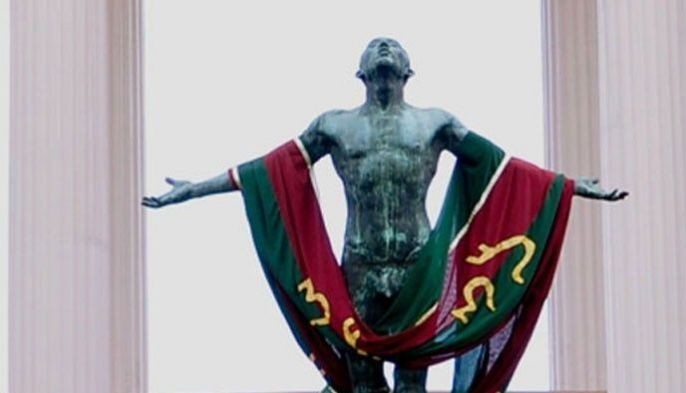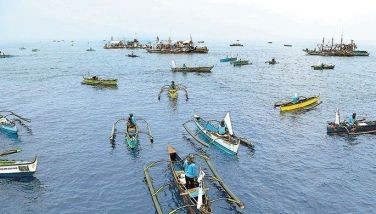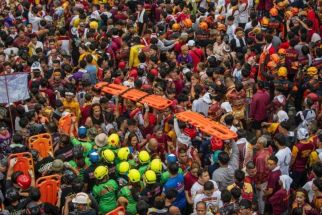No time frame on peace talks with Reds — GMA
February 10, 2004 | 12:00am
President Arroyo has not given any time frame for government negotiators to sign a peace agreement with communist rebels.
"The time frame for a peace agreement is not as important as the need for it to be durable and meaningful to the lives of ordinary Filipinos," she said in a statement from Malacañang. "Peace is part of political stability, economic strength and social equity. Waging peace is part of the fight for change. This is an important part of the reconciliation and reform inherent in our platform."
Mrs. Arroyo issued the statement following reports that she wanted a peace agreement signed before the presidential elections on May 10.
Peace negotiations are due to get under way in Oslo today, with the government hopeful of signing a peace treaty ending the 35-year insurgency before the May elections.
However, Luis Jalandoni, chief negotiator for the National Democratic Front (NDF), said the 8,800-strong NPA would step up the "armed struggle" even as their political leaders hold peace negotiations with the government. Speaking over dzRH radio by telephone from his base in Utrecht in the Netherlands, Jalandoni said the two sides would be lucky to complete 50 percent of the issues on the negotiating table.
As the on-and-off peace talks resume this week in Oslo, the government and rebel panels have expressed optimism that there will be significant advances this time.
As government and rebel peace negotiators prepared for talks in Norway, troops killed three New People’s Army (NPA) rebels and captured a fourth in separate encounters in Davao Oriental and Agusan del Sur on Sunday.
Two guerrillas were killed in the town of San Luis in Agusan del Sur, while a gunman was shot dead and another captured in an hour-long gunbattle in Baganga town in Davao Oriental.
No casualties were reported on the government side.
Meanwhile, Muntinlupa Rep. Rufino Biazon warned the government against using the revived peace talks with communist rebels for political ends. "It (peace talks) can also be insulated from politics and the elections," he said, "It is the government’s duty and obligation to the people to work for peace."
Sen. Rodolfo Biazon, a former Armed Forces chief, said he is hopeful that the four-day talks between the government and rebel panels could lead to the signing of a peace agreement.
"The road to peace is a long, winding road, but we must continue," he said. "It yielded different phases. President Arroyo’s efforts to continue the peace process could give us the right steps, so let it be."
The rebels have demanded that the government implement the Comprehensive Agreement on Respect for Human Rights and International Humanitarian Law, free all political prisoners identified with the radical Left, indemnify human rights victims of martial law, and to renounce the US-instigated "terrorist" tag on the CPP-NPA and self-exiled communist leader Jose Ma. Sison. — Marichu Villanueva, Roel Pareño, Artemio Dumlao, Bong Fabe, Benjie Villa, AFP, AP
"The time frame for a peace agreement is not as important as the need for it to be durable and meaningful to the lives of ordinary Filipinos," she said in a statement from Malacañang. "Peace is part of political stability, economic strength and social equity. Waging peace is part of the fight for change. This is an important part of the reconciliation and reform inherent in our platform."
Mrs. Arroyo issued the statement following reports that she wanted a peace agreement signed before the presidential elections on May 10.
Peace negotiations are due to get under way in Oslo today, with the government hopeful of signing a peace treaty ending the 35-year insurgency before the May elections.
However, Luis Jalandoni, chief negotiator for the National Democratic Front (NDF), said the 8,800-strong NPA would step up the "armed struggle" even as their political leaders hold peace negotiations with the government. Speaking over dzRH radio by telephone from his base in Utrecht in the Netherlands, Jalandoni said the two sides would be lucky to complete 50 percent of the issues on the negotiating table.
As the on-and-off peace talks resume this week in Oslo, the government and rebel panels have expressed optimism that there will be significant advances this time.
As government and rebel peace negotiators prepared for talks in Norway, troops killed three New People’s Army (NPA) rebels and captured a fourth in separate encounters in Davao Oriental and Agusan del Sur on Sunday.
Two guerrillas were killed in the town of San Luis in Agusan del Sur, while a gunman was shot dead and another captured in an hour-long gunbattle in Baganga town in Davao Oriental.
No casualties were reported on the government side.
Meanwhile, Muntinlupa Rep. Rufino Biazon warned the government against using the revived peace talks with communist rebels for political ends. "It (peace talks) can also be insulated from politics and the elections," he said, "It is the government’s duty and obligation to the people to work for peace."
Sen. Rodolfo Biazon, a former Armed Forces chief, said he is hopeful that the four-day talks between the government and rebel panels could lead to the signing of a peace agreement.
"The road to peace is a long, winding road, but we must continue," he said. "It yielded different phases. President Arroyo’s efforts to continue the peace process could give us the right steps, so let it be."
The rebels have demanded that the government implement the Comprehensive Agreement on Respect for Human Rights and International Humanitarian Law, free all political prisoners identified with the radical Left, indemnify human rights victims of martial law, and to renounce the US-instigated "terrorist" tag on the CPP-NPA and self-exiled communist leader Jose Ma. Sison. — Marichu Villanueva, Roel Pareño, Artemio Dumlao, Bong Fabe, Benjie Villa, AFP, AP
BrandSpace Articles
<
>
- Latest
- Trending
Trending
Latest
Trending
Latest
Recommended
January 10, 2025 - 12:00am






























